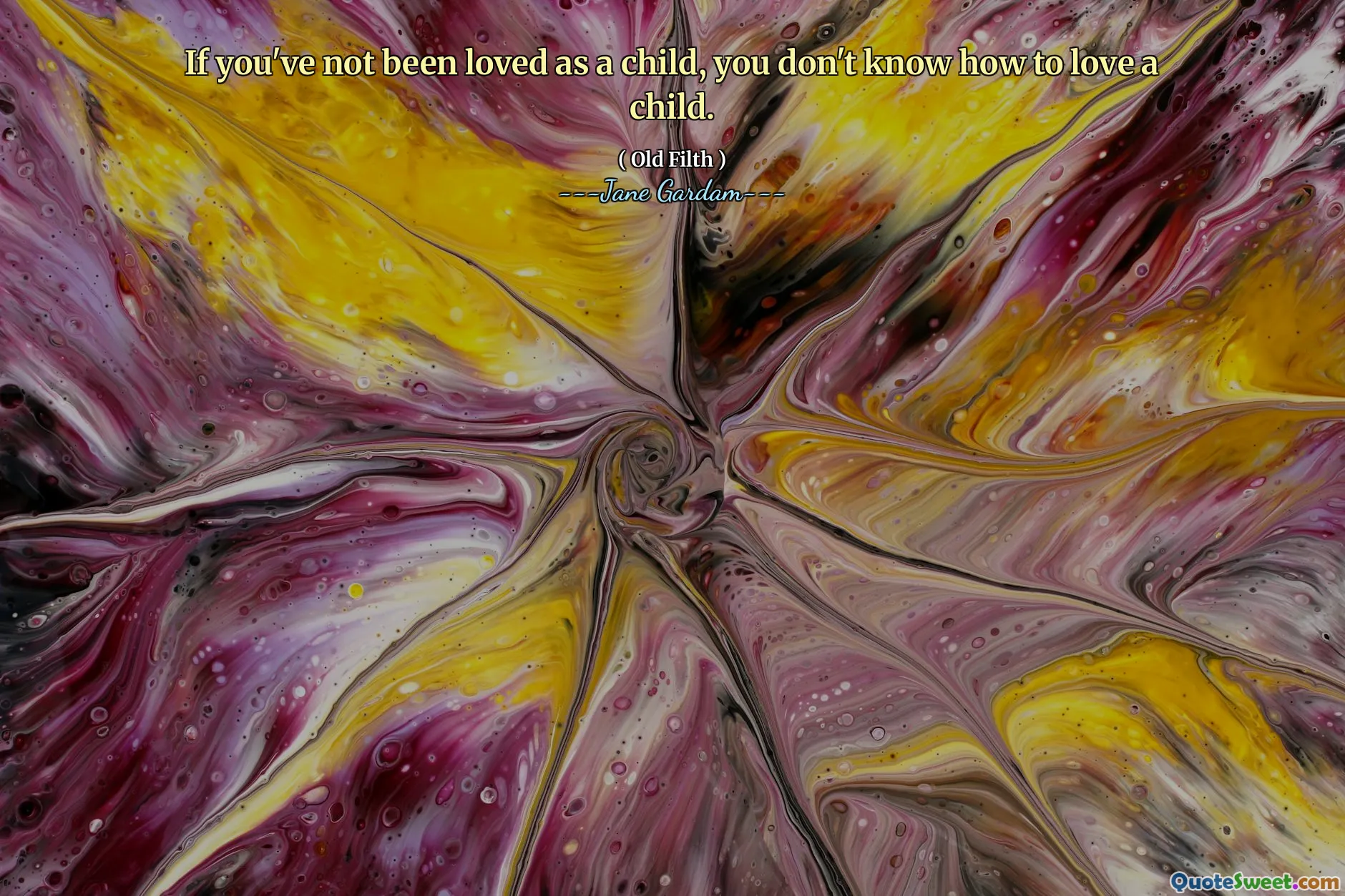
If you've not been loved as a child, you don't know how to love a child.
This quote from Old Filth by Jane Gardam resonates deeply with the notion that our early experiences shape not only our understanding of relationships but also our capacity to express love. When a child grows up without feeling loved, it may create an emotional void or a distorted blueprint of affection and trust. This lack of early nurturing can lead to difficulties in recognizing and offering love later in life, especially toward children. The idea underscores the intergenerational cycle of emotional deprivation or fulfillment, implying that the love we receive as children is foundational to our emotional intelligence and empathy.
Moreover, this quote brings attention to the profound importance of childhood experiences in emotional development. It highlights that love is learned as much as it is felt; if a person has never been enveloped in care and affection during the formative years, they might struggle to replicate that environment for others, perpetuating unconscious emotional barriers. Through this lens, it becomes clear why breaking negative cycles of neglect is critical not only for individual well-being but for societal health as a whole.
Acknowledging this truth invites compassion and understanding for those who find love difficult to express. It also serves as a call to action for caregivers and society to prioritize nurturing environments, ensuring each child feels valued and loved. By doing so, we contribute to a future where love flows more freely across generations, allowing children to grow into adults capable of loving themselves and others fully.






